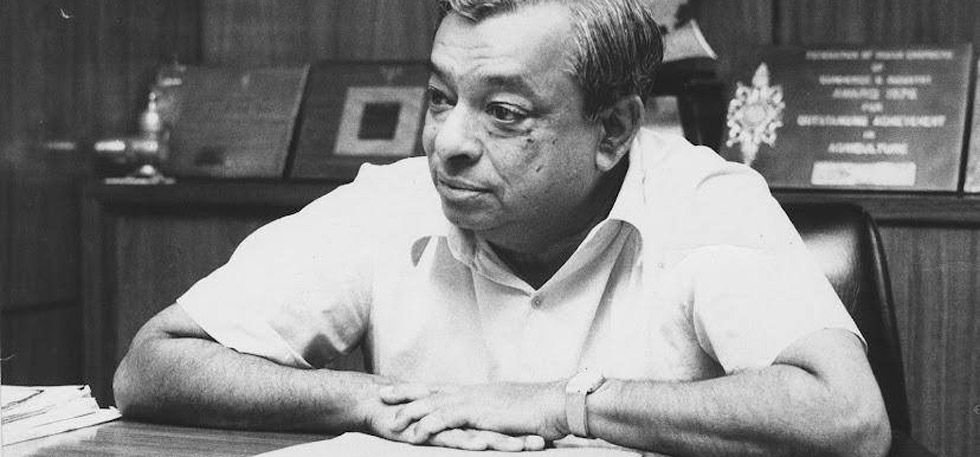Dr. Verghese Kurien, the Father of the White Revolution, transformed India’s dairy industry with Operation Flood, making India the world’s largest milk producer. His cooperative model empowered rural farmers, improving their livelihoods and boosting milk production. Kurien’s contributions earned him accolades like the Ramon Magsaysay Award and Padma Vibhushan.
In the lush landscapes of India, where millions depend on farming, emerged a hero who would go on to revolutionize the dairy industry. Dr. Verghese Kurien, affectionately known as the “Father of the White Revolution,” transformed India’s dairy farming into the world’s largest milk-producing nation. This change was not just about numbers; it was about empowering rural farmers, bringing prosperity to households, and crafting a tale of resilience and innovation.
Dive deep with us as we explore the journey of this visionary, whose passion for milk churned a nation’s destiny and left an indelible mark on the global dairy map.
Early Life and Education
Verghese Kurien was born on November 26, 1921, in Kozhikode, Kerala. A bright student, he completed his engineering studies at Madras University before receiving a government scholarship to study dairy engineering at Michigan State University in the United States. Initially uninterested in dairy farming, Kurien’s education abroad set the stage for his monumental contributions to India’s dairy sector.
Professional Journey and Achievements
Upon returning to India, Kurien began working as an officer at the Government Creamery in Anand, Gujarat. This seemingly modest position marked the beginning of a transformative journey, not just for him, but for the entire Indian dairy industry. In partnership with local farmers, especially Tribhuvandas Patel, Kurien founded the Kaira District Co-operative Milk Producers’ Union. This initiative would evolve into the Amul cooperative brand, which revolutionized the dairy landscape in India.
Kurien’s entrepreneurial vision and innovative techniques ensured that profits from dairy products were returned to the farmers, empowering them and leading to the celebrated White Revolution. Under his leadership, Operation Flood was launched, which significantly increased milk production and transformed India into the largest milk producer in the world. Over 30 years, milk availability per person doubled, and overall milk output increased four-fold.
The Legacy of Verghese Kurien
Dr. Verghese Kurien’s legacy is profound and lasting. His efforts did more than make India the world’s largest milk producer; they transformed the livelihoods of millions of rural dairy farmers, lifting them out of poverty. The Amul brand, which he helped create, stands as a testament to his vision and continues to thrive as one of India’s leading dairy brands. His principles of cooperative endeavour and putting farmers at the forefront have inspired numerous initiatives across the country. Kurien’s life work ensures that he remains a symbol of innovation, determination, and social entrepreneurship in India.
Why Verghese Kurien is Considered The Father of the White Revolution
Kurien is considered the “Father of the White Revolution” in India due to his transformative contributions to the dairy industry. He revolutionised the sector from a small, fragmented entity to a large, self-sustaining industry that provides employment to millions and significantly contributes to the economy. His work was based on the principle of cooperative federalism, enabling small farmers to unite and form strong organisations that could negotiate with large buyers. He also emphasised the importance of education and training for dairy farmers.
Operation Flood, launched by Kurien, was a massive program aimed at increasing milk production and improving the lives of dairy farmers. It was a resounding success, increasing India’s milk production four-fold in 30 years and creating millions of jobs in the dairy sector. This program greatly improved the incomes of millions of rural families.
Kurien’s work has been recognized with numerous awards, including the Ramon Magsaysay Award, the World Food Prize, and the Gandhi Peace Prize. He was also awarded the Padma Vibhushan, India’s third-highest civilian award. These honors reflect his visionary leadership and lasting impact on Indian agriculture.
Impact on Dairy Development
Dr. Verghese Kurien, fondly remembered as the ‘Milkman of India,’ had a profound impact on dairy development:
- White Revolution: Under Kurien’s leadership, Operation Flood transformed India from a milk-deficient nation to the world’s largest milk producer within a few decades.
- Establishment of Amul: Along with Tribhuvandas Patel, Kurien founded the Kaira District Co-operative Milk Producers’ Union, leading to the creation of the Amul brand, which symbolises high-quality dairy products made by and for farmers.
- Empowerment of Farmers: Kurien’s cooperative model ensured that profits flowed back to the farmers, improving their socio-economic status.
- Technological Advancements: Kurien established the Institute of Rural Management Anand (IRMA) and the National Dairy Development Board (NDDB), which developed innovative solutions for milk storage, transportation, and distribution.
- National and Global Reach: Kurien’s cooperative model was replicated nationwide through the NDDB, garnering international attention and aiding other countries in developing their dairy industries.
Awards and Honors
Dr. Verghese Kurien’s relentless efforts to uplift the dairy sector in India brought him numerous accolades. These awards and honours, including the Ramon Magsaysay Award, the World Food Prize, the Gandhi Peace Prize, and the Padma Vibhushan, underscore his dedication and revolutionary impact, solidifying his status as a global icon in dairy development.
Dr. Verghese Kurien’s life and work remain an inspiration, demonstrating the power of vision, innovation, and dedication to transforming a nation’s destiny.
Awards and Honors of Dr. Verghese Kurien
| Year | Award | Awarding Organisation |
| 1963 | Ramon Magsaysay Award | Ramon Magsaysay Award Foundation |
| 1965 | Padma Shri | Govt. of India |
| 1966 | Padma Bhushan | Govt. of India |
| 1986 | Krishi Ratna | Govt. of India |
| 1986 | Wateler Peace Prize | Carnegie Foundation |
| 1989 | World Food Prize | World Food Prize Foundation |
| 1993 | International Person of the Year | World Dairy Expo |
| 1997 | Order of Agriculture Merit | Ministry of Agriculture, France |
| 1999 | Padma Vibhushan | Govt. of India |



